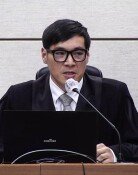Designation of Autonomous High Schools to Come Next Year
Designation of Autonomous High Schools to Come Next Year
Posted December. 30, 2008 03:14,
From next year, provincial and city governments nationwide will start selecting autonomous private high schools operating independently from the government.
The schools will recruit students through computer balloting, interviews or document screening.
The selection of autonomous private high schools will start next year and their number will reach 100 by 2012.
The Education, Science and Technology Ministry submitted yesterday a revised bill on public education on the establishment and operation of autonomous private high schools.
To diversify high school education, professional and public high schools will be allowed to transform into meister or public boarding schools. Private high schools, which account for 44 percent of all high schools, will also turn into autonomous private high schools.
Autonomous private high schools will be given greater freedom. For instance, they will be allowed to adjust the national curriculum and eliminate the grading system.
In most cities and provinces, superintendents will have the authority to select autonomous schools. In areas where standardized education is guaranteed, however, prior consultation with the education minister is required.
Each city and provincial office of education will begin receiving applications between March and July from those seeking set up autonomous high schools. Thirty such schools nationwide will be selected next year.
Private high schools as well as private school foundations can apply for the designation.
Given that most private school foundations cannot afford to provide each student with funds amounting to 25 percent of tuition, city governments will reduce the amount to five percent and provincial governments three percent.
The schools will recruit students from the second half of next year.
Students can apply to only one high school among foreign, science, international, autonomous or independent high schools, whose recruitment process starts earlier than regular high schools.
Unlike independent high schools that recruit students from the whole country, autonomous high schools can only admit students from the region they belong to. Twenty percent of the slots must be set aside for underprivileged students and writing tests for admission are forbidden. Interviews asking content in the school curriculum are not allowed, either.
In non-standardized areas, principals can decide on the selection methods based on the results of the state-run high school entrance exam or school grades. For standardized regions, superintendents can choose the methods using computer balloting, interviews and documents.
The Education Ministry is reviewing recommending a method where a school first selects five times more students than needed and uses a balloting for the final selection. The ministry says the balloting system could help reduce the demand for private education.
Critics say, however, that the plan could be criticized for failing to choose students based on academic ability, as was the case when international middle schools in Seoul selected students through the same balloting system.
For successful operation of autonomous high schools, experts say private school foundations, which can run a distinctive curriculum, should take the lead in transforming into autonomous schools.
They are hesitating to do so, however, because they are not allowed to select students as they please.
So to induce private school foundations, the ministry has reduced the annual funding requirement to 200 million to 300 million won (156,000 to 234,000 U.S. dollars).
In return for the reduction, they are ineligible for an annual subsidy of 2.4 billion won (1.86 million dollars).
No limit is set for tuition, but city and provincial offices of education will likely to prevent an autonomous high school from receiving tuition more than three times those of regular high schools, as they do for independent high schools. This can lead to a shortage of funds and lead to lax management of the school, experts say.
foryou@donga.com






![“설거지해도 그대로”…냄비 ‘무지개 얼룩’ 5분 해결법 [알쓸톡]](https://dimg.donga.com/c/138/175/90/1/wps/NEWS/IMAGE/2026/01/15/133164664.3.png)
